Working from home will physically change the way humans look - terrifying new images
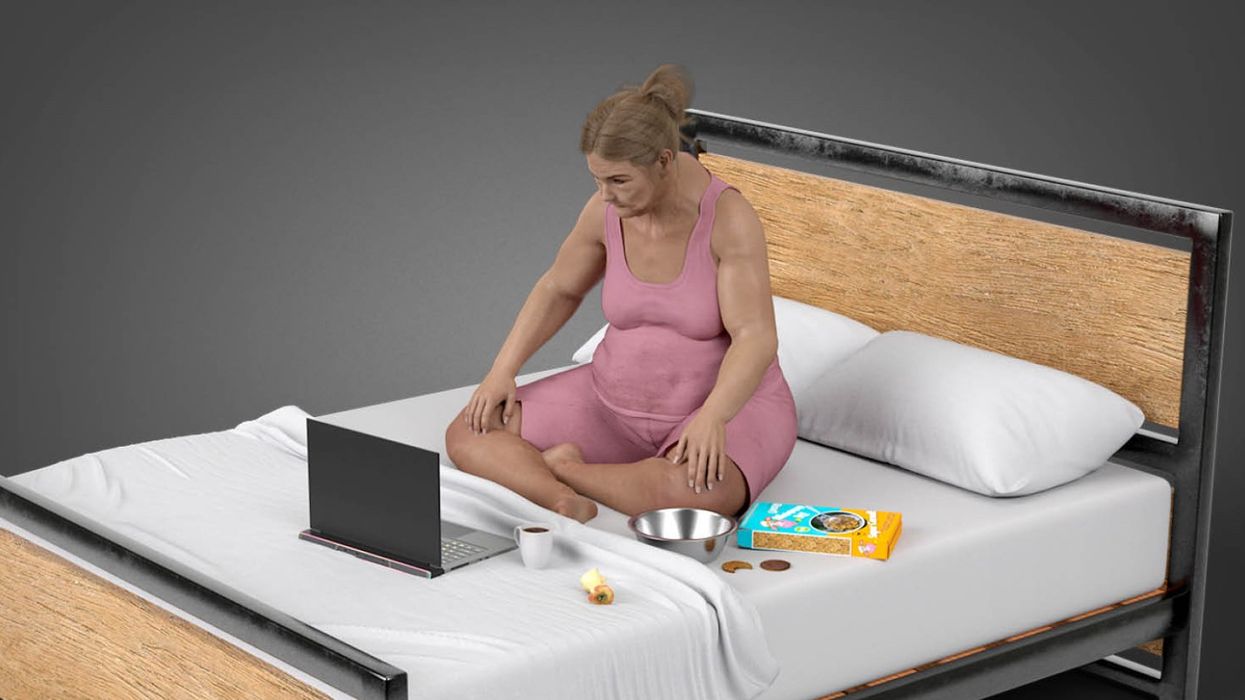
Working From Bed
|Furniture at Work
Fast forward to the year 2100 and our bodies are in bad nick according to new research
Don't Miss
Most Read
New research has provided a nightmarish crystal ball into a future where working from home has drastically altered the way we look.
Concerned health experts suggest humans will develop hunched-backs through poor posture, claw hands thanks to tech, red eyes caused by screentime, weight gain through sedentary lifestyle, and poor mental health.
While working from home became mandatory in the Covid-19 pandemic, many business have continued to offer remote or hybrid working as a flexible option for increasingly inflexible employees.
Furniture at Work has sourced scientific research and called upon health experts to inform the creation of a 3D model of the future human body dubbed Anna.
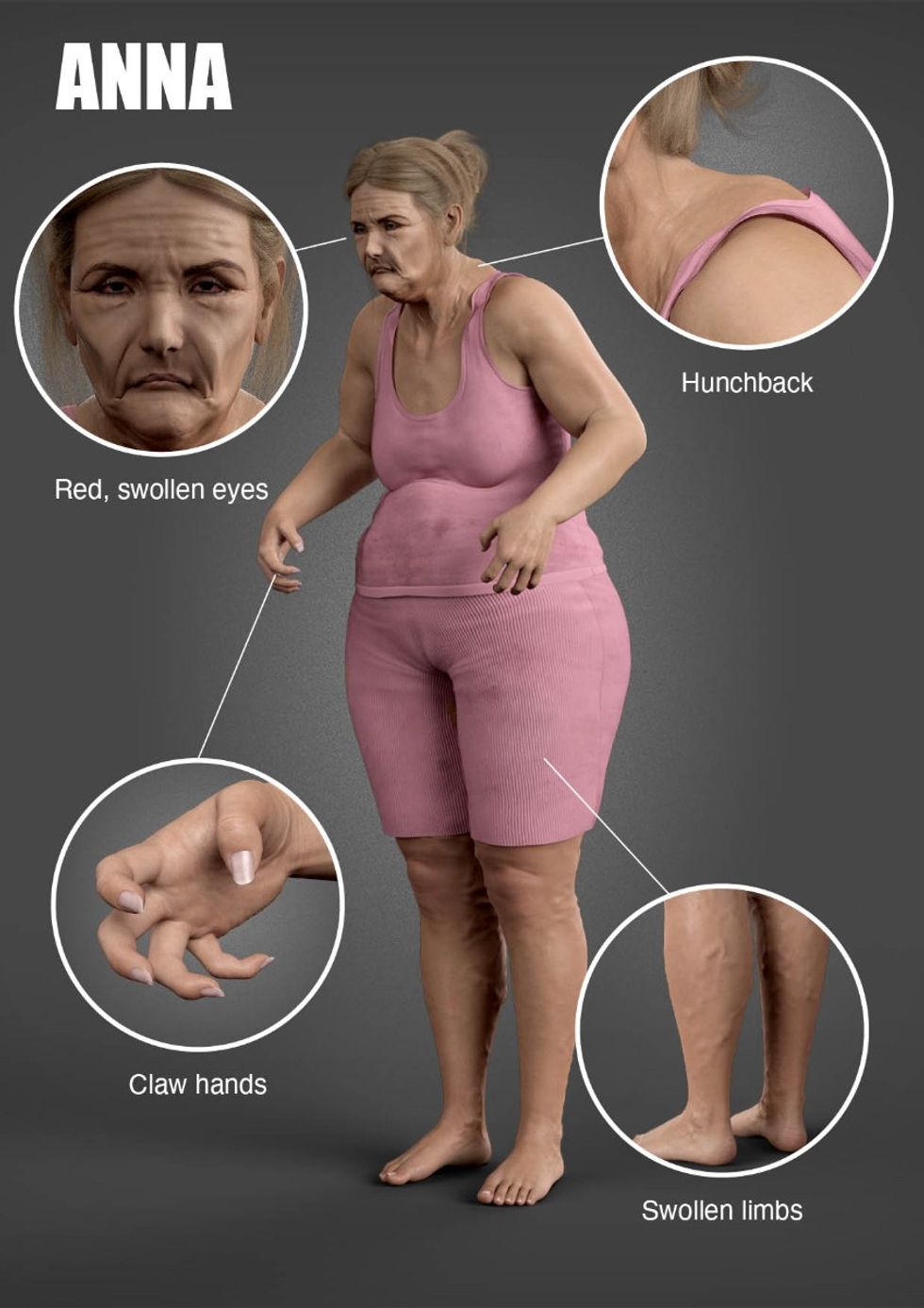
What humans could look like in 70 years time
|Furniture at Work
Experts believe working from home without professional chairs or desks could accelerate the bane of bad backs.
Dr LS Wand, an award-winning orthopaedic surgeon, said: “Lack of regular movement and ergonomic inefficiencies can lead to musculoskeletal disorders (MSD).
“Chronic pains and degenerative conditions can also develop because of prolonged sitting and inadequate posture (especially when no one is watching).”
Remote workers of the future are also at risk of “Text Claw,” the non-medical term for cramps and aches stemming from continuous performance of unnatural motor activities such as holding a phone or using a mouse.
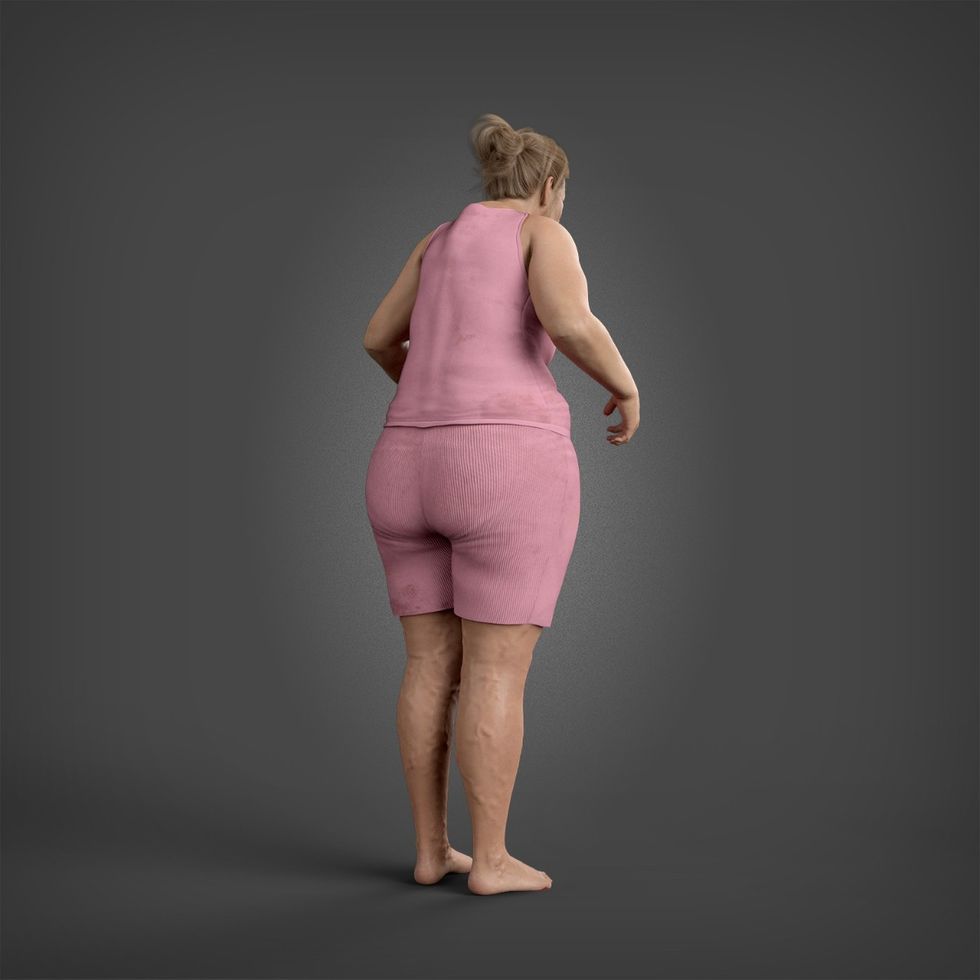
Humans are up against technology and laziness often disguised as convenience
|Furniture at Work
Prolonged use of screens, especially in an environment without adequate natural light, can cause the eyes to strain resulting in dark, swollen and baggy eyes.
Sarah Gibson, Director of Proactive Healthcare, recommends following the 20-20-20 rule: “Try to look away from your screen every 20 minutes for 20 seconds and focus on something 20 feet away.
“This is a great way to avoid eye strain while working from home.”
Losing the all important step count of the commute, moving less between desks and taking drinks breaks less often could lead to weight gain and corollary health issues of diabetes and heart disease.
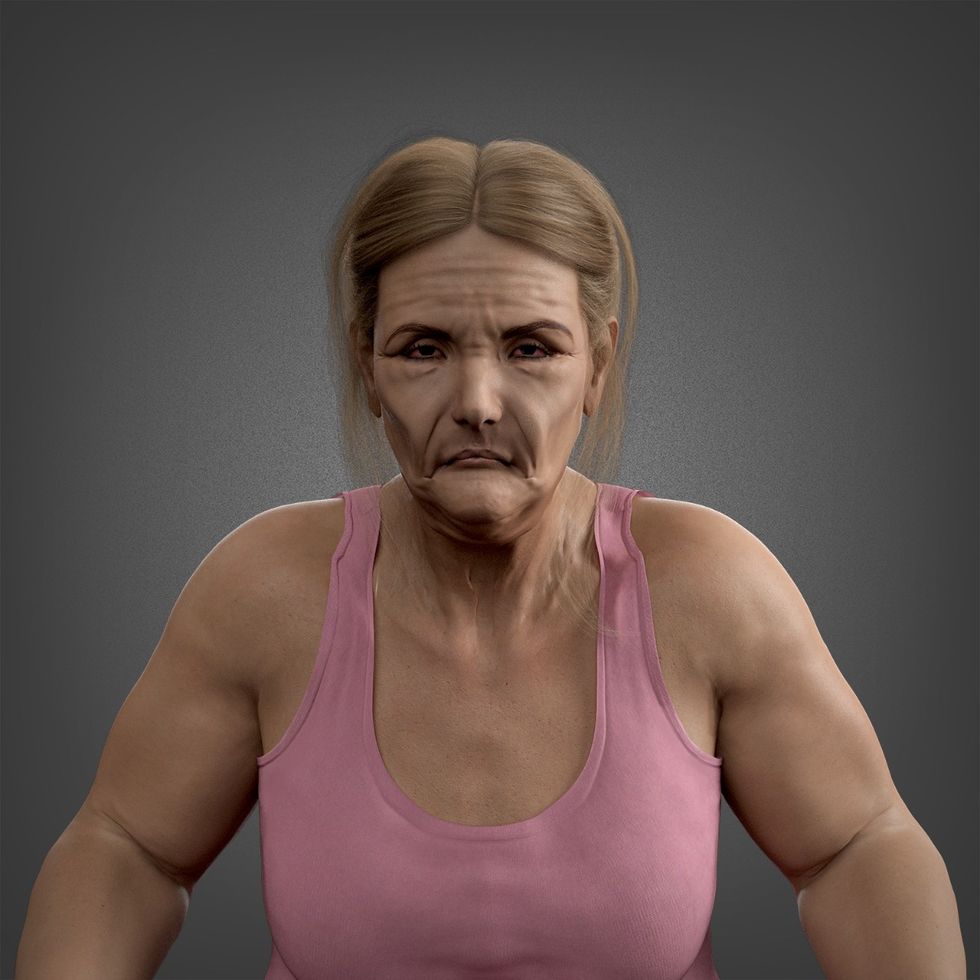
Swollen and sunken eyes from screen time
|Furniture at Work
Such a sedentary lifestyle is paired with the temptation of a nearby snack cupboard.
Dr. JB Kirby, a nurse practitioner with 38 years of experience, said: “Without the need to commute to work, many people find that they become more sedentary, leading to weight gain and a higher risk of developing chronic health conditions such as diabetes and heart disease.”
Dr. Sony Sherpa, a holistic physician, said: “You are more likely to live a sedentary lifestyle when working from home. This physical inactivity can put you at a greater risk of developing cardiovascular diseases, diabetes, and obesity.”
Lastly, experts have warned of many mental health risks associated with working from home.
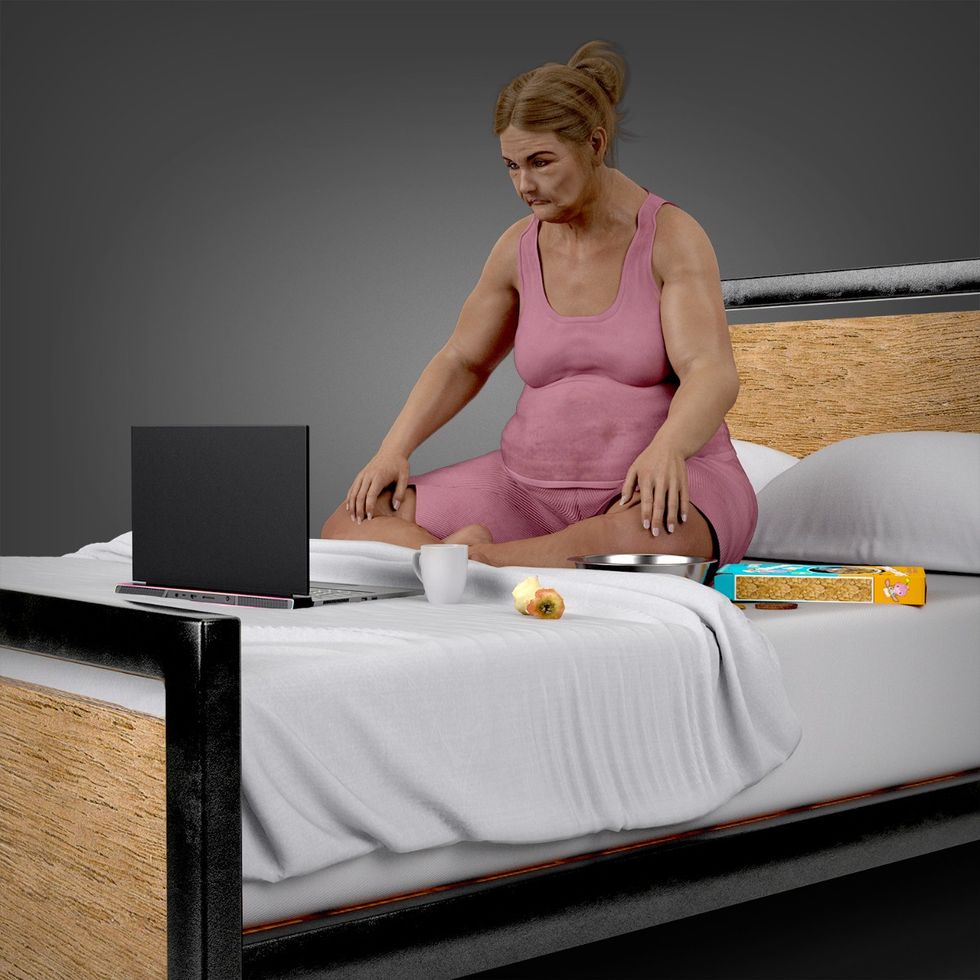
A sedentary lifestyle for Anna
|Furniture at Work
Joni Ogle, CEO of The Heights Treatment, said: “Without a precise work-life balance, no office hours, or a set location to go back to at the end of each workday, the anxiety of not knowing when to ‘switch off’ can become overwhelming.
“We can start to feel like we are never truly away from work, which can lead to burnout.”
Brian Clark, Founder of United Medical Education, added: “Long-term health risks of working from home include mental health concerns such as stress, loneliness, and burnout.
“To avoid these risks, remote workers should prioritise social connection and self-care, and establish clear boundaries between work and personal time.”










